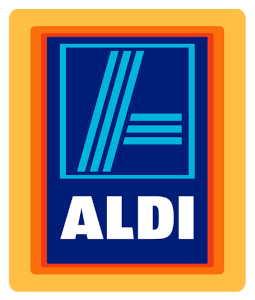Key Findings
- ALDI has a public safer chemicals policy that includes a beyond restricted substance list (BRSL) and manufacturing restricted substance list (MRSL) for apparel, home textiles, and footwear, which are collectively a minor product category. The company is committed to achieving the goals of the Zero Discharge of Hazardous Chemicals (ZDHC) program to reduce negative impacts on the environment and health caused by chemicals used in the textile and footwear industries. The company also has a limited BRSL covering bisphenol A (BPA) in private-label Little Journey-brand baby food pouches.
- ALDI is making steady progress in achieving its goals for reducing seven prioritized chemical groups in the manufacturing of these product categories and has eliminated PFAS in private-brand textiles. ALDI conducts trainings for suppliers and requires OEKO-TEX or bluesign certification for textiles.
- In addition, ALDI participated in the 2020 Chemical Footprint Project survey for its entire product range.
Recommendations for ALDI
- ALDI can make progress by expanding its safer chemicals policy beyond textiles and expanding its BRSL for the Little Journey brand to include other private-label and name-brand food-contact materials, and setting public quantifiable goals with clear timelines for reducing chemicals of high concern (CHCs) and/or plastics of environmental health concern (PEHCs).
- We urge ALDI to eliminate and safely replace any toxic indirect food additives that may be in food contact materials, with special attention to any bisphenols and per- and polyfluoroalkyl substances (PFAS) that may be in food packaging and other food contact materials as well as any phthalates that may be in food and food contact materials in its supply chain. The company should also eliminate PEHCs from its product and packaging materials. ALDI should publicly disclose the alternatives used to replace CHCs or PEHCs after eliminating them.
- The company should become a signatory to the Chemical Footprint Project.
Grade History
How does ALDI compare to its competitors?
Analysis of ALDI
Oversight: Established management responsibilities and incentives
Disclosure: Requires suppliers to report use of chemicals in products to retailer
Action: Reduced or eliminated chemicals of high concern (CHCs) or plastics of environmental health concern (PEHCs) within the last three years
Safer Alternatives: Evaluates safer alternatives, avoids regrettable substitutes
Transparency: Demonstrates a commitment to transparency and public disclosure
Third-party Standards: Promotes credible third-party standards for safer products
Extra Credit:
Joint Announcement: Public commitment demonstrated through joint announcement
Continuous Improvement: Shows continuous improvement by steadily expanding safer chemicals policy
Collaboration: Actively participates in collaborative process to promote safer chemicals
Impact Investment: Investing financial resources into independent research into safer alternatives and/or green chemistry solutions


